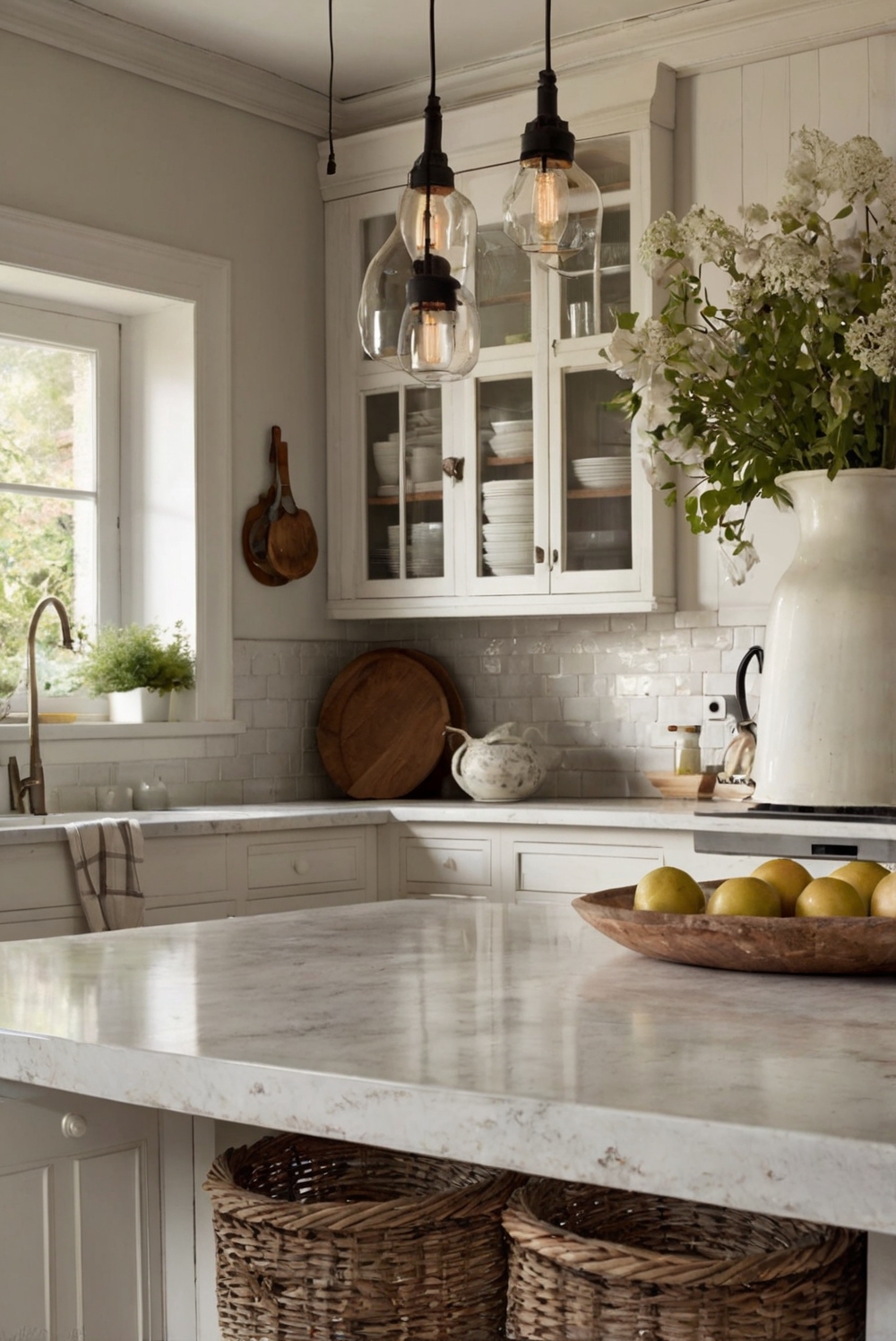Explore the importance of countertop material thickness in your daily interior design routine. Discover how this detail can elevate the aesthetics of your space effortlessly.
Why consider the thickness of your countertop material?
Choosing the right thickness for your countertop material is crucial for both aesthetic and functional reasons in home decorating. Thicker countertops tend to provide a more luxurious and substantial look to the space, enhancing the overall appeal of your home interior design. Moreover, thicker countertops can withstand more wear and tear, making them durable choices for busy areas like the kitchen. If you opt for a thinner countertop, you may risk compromising its durability and visual impact. Therefore, it is essential to consider the thickness of your countertop material to ensure proper space planning and to enhance the design of your home interiors.
Why Consider the Thickness of Your Countertop Material?
1. Durability
A key reason to consider the thickness of your countertop material is durability. Thicker countertops are generally more durable and long-lasting compared to thinner ones. The thickness of the material can impact its ability to withstand daily wear and tear, heat, moisture, and other potential damages. Thicker countertops are less likely to chip, crack, or break, making them a more reliable and sturdy option for your kitchen or bathroom.
2. Strength
Another important factor to consider is strength. Thicker countertops tend to be stronger and more resistant to pressure and weight. If you use your countertops for heavy-duty tasks such as chopping, cooking, or placing heavy objects, a thicker material can provide the necessary strength and support. Thinner countertops may not be able to handle the same level of stress, leading to potential damage over time.
3. Aesthetics
The aesthetics of your countertop are also influenced by the thickness of the material. Thicker countertops can create a more substantial and luxurious look in your space. They can make a bold statement and enhance the overall design of your kitchen or bathroom. Thicker countertops can also offer more depth and dimension, adding visual interest and sophistication to your home.
4. Functionality
When choosing the thickness of your countertop material, it’s essential to consider functionality. Thicker countertops may provide additional benefits such as better noise reduction, improved insulation, and a more comfortable working surface. The thickness of the material can impact how you use your countertops on a daily basis, so selecting the right thickness is crucial for ensuring optimal functionality in your kitchen or bathroom.
5. Cost
Lastly, cost is a factor to consider when deciding on the thickness of your countertop material. Thicker materials typically cost more than thinner ones due to the additional material and labor required. While thicker countertops may offer greater durability and strength, they may also come with a higher price tag. It’s important to weigh the benefits of thickness against the associated costs to find a balance that suits your budget and preferences.
In conclusion, the thickness of your countertop material plays a significant role in determining its durability, strength, aesthetics, functionality, and cost. By considering these factors carefully and selecting the right thickness for your needs, you can ensure that your countertops not only look great but also perform well and stand the test of time. Whether you prioritize durability, aesthetics, functionality, or cost, choosing the appropriate thickness is essential for creating a beautiful and practical space in your home.

